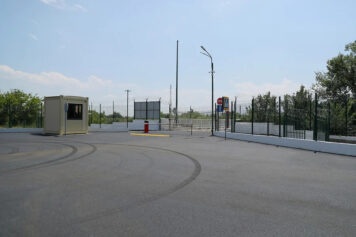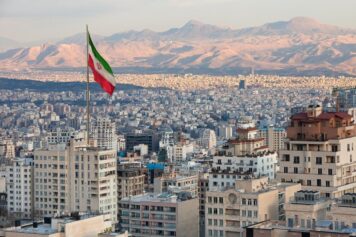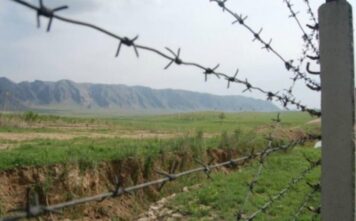The new chessboard of the Middle East and Armenia’s role there
23.08
2025
A new geopolitical reality is taking shape in the Middle East, drawing renewed global attention. The United States continues to pursue a “soft policy,” attempting to contain escalating conflicts while maintaining control over the region’s key players. Efforts to manage the crises in Gaza, Syria, and elsewhere are accompanied by attempts to limit Israel’s operations in Iran and Syria.
It is notable that, in the event of a potential war around Iran, Washington avoided launching ground operations. This decision was not only pivotal for the Middle East but also carried predictable consequences for the South Caucasus.
Turkey and Azerbaijan’s role
Despite Turkey’s de jure absence from some developments, its de facto presence remains undeniable. Baku continues to capitalize on emerging opportunities. The idea of the “Middle Corridor” is of primary importance today for China, Central Asia and Europe. In the event of the opening of this corridor, Turkey will receive a direct connection with Europe, and Azerbaijan will try to strengthen its transit role.
This context underscores the significance of the so-called “Zangezur Corridor.” Yet the issue extends far beyond regional politics. It consists of two massive dimensions: a political one, where state-level decisions are made, and an economic one, where the fate of major powers’ energy and logistics routes is determined.
In the latter case, neither Turkey nor Azerbaijan can act independently.
Clash of U.S. and Chinese interests
Two major logistical models are currently competing on the global stage:
- China’s “Middle Corridor” (China–Central Asia–Caucasus–Europe)
- The India–Middle East–Europe model, which enjoys strong U.S. backing.
Washington supports the Indian route as a counterweight to China’s growing influence. The unconditional support of Washington and Israel for New Delhi during the recent India-Pakistan conflict was a vivid proof of this.
For Armenia, this creates a complex diplomatic challenge. The current government is attempting to “flirt” with the U.S. while simultaneously exploring opportunities with China — a balancing act that inherently carries contradictions.
Iran’s role and regional balance
China has long established a firm foothold in Iran. Therefore, U.S. presence in the South Caucasus represents not only an attempt to influence Armenia but also a means to monitor Iran and China’s regional moves. If the corridor strategy becomes reality, Washington will likely seek to control the region’s logistics network.
However, the U.S. is not interested in allowing the so-called “Turan Corridor” to evolve into a platform for political Sunnism. This project is not American in origin; rather, it is British, rooted in 19th-century geopolitical thinking when the ideology of Pan-Turkism emerged as a counterweight to Russian influence.
Potential U.S.–Russia understanding
It is plausible that Moscow and Washington could reach a semi-secret understanding on certain regional matters. The recent Putin–Trump meeting and discussions of Russian proposals regarding Ukraine indicate that such a platform may already be emerging. This, in turn, could have implications for the South Caucasus.
If a consensus is reached among Iran, Russia, and the United States, the “Zangezur Corridor” is unlikely to become a tool of Sunni political expansion. Iran’s firm stance on the issue further supports that likelihood.
Turkey’s ambitions and the U.S. “balanced policy”
Turkey aspires to become a non-permanent member of the UN Security Council by 2025, reflecting its geopolitical ambitions. However, both the U.S. and Russia are unlikely to allow Ankara to evolve into a dominant power in the region. Washington is pursuing a policy of balance — weakening Turkey in some areas while empowering it in others.
The U.S. continues to support Kurdish forces in Syria, demonstrating that Washington views Turkey not as an unshakable ally but as a factor that must remain under constant supervision.
Energy calculations and geopolitical competition
Azerbaijan’s attempts to enter the Middle Eastern energy market — particularly in Syria — could disrupt the delicate regional power balance. Moreover, the $750 billion energy agreement recently signed between the U.S. and the EU signals Washington’s intent to dominate Europe’s gas market.
In this context, it becomes evident that without consensus among the global powers, no large-scale energy or logistics project will have a stable foundation.
An era of mutual dependence
The world stands at the threshold of a new geopolitical reconfiguration. For the South Caucasus, this means that Armenia’s foreign policy must rely on cool calculation rather than emotional alignment. Negotiations surrounding the “Zangezur Corridor” should be viewed not as a local dispute but as part of a broader global competition.
Armenia’s greatest mistake would be to rely on a “single patron”. The country must instead pursue a balanced foreign policy that allows it to navigate the interests of the United States, Russia, and China — while preserving the core pillars of its sovereignty.





